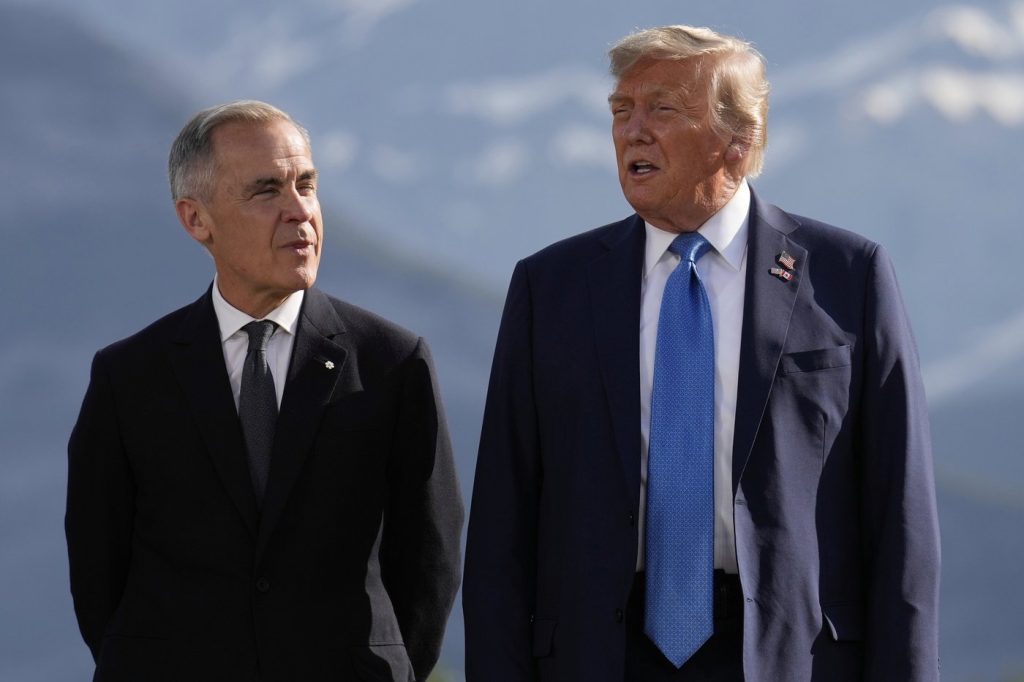OTTAWA — Canada has canceled its controversial digital services tax, which could have cost tech giants like Amazon and Google nearly $2 billion. This announcement, made by Finance Minister François-Philippe Champagne late Sunday, came just one day before the first payment was due. The cancellation followed a phone call between Prime Minister Mark Carney and U.S. President Donald Trump, which was part of ongoing discussions between the countries concerning trade relations, particularly since Trump's sudden declaration on Friday to halt all trade talks with Canada and threaten new tariffs.
The digital services tax, first announced in 2020, aimed to address perceived tax loopholes that allowed large tech companies to operate in Canada, deriving revenues from Canadian users without paying taxes in the country. The legislation to implement the tax was passed last year, and while it had been in effect for a year, the first payment was retroactive to 2022, set for June 30.
This tax would have applied to companies running online marketplaces, advertising services, and social media platforms, imposing a three-percent levy on revenue generated from Canadian users. It targeted large firms with worldwide annual revenue exceeding €750 million and Canadian digital services revenue over $20 million. The parliamentary budget officer had estimated that the tax could yield $7.2 billion over five years, with initial payments expected to be around $2 billion collectively from the largest tech companies by the end of June 2025.
The backdrop to this decision is a prolonged struggle at the Organization for Economic Co-operation and Development (OECD) to establish a multilateral tax system to replace individual countries' digital service taxes. Canada proceeded with its tax as negotiations faltered, asserting that it faced disadvantages compared to other countries like France and the United Kingdom that had already implemented similar taxes.
Opposition to the digital services tax had mounted from various quarters. Critics argued that Canada should wait for a global tax agreement instead of acting unilaterally. The retroactive nature of the tax also drew significant ire, as companies would be obligated to pay several years' worth of taxes at once. U.S. businesses claimed the tax unfairly targeted American companies; since many of the major firms affected are based in the U.S., they would have been responsible for a considerable percentage of the tax revenue, with some Congress members estimating that U.S. firms would pay 90 percent of the total revenue generated.
Before the tax's cancellation, Rick Tachuk, president of the American Chamber of Commerce in Canada, voiced that this tax could destabilize cross-border trade and exacerbate tensions in Canada-U.S. relations. Legal experts also noted that Canada’s decision to move forward with the tax was likely to lead to adverse reactions from the Trump administration, which had signaled its disapproval of digital service taxes for years.
Trump's intervention intensified the debate on Friday when he declared he was terminating all trade discussions with Canada, labeling the tax a "direct and blatant attack" on the U.S. This was compounded by ongoing tensions stemming from high tariffs imposed on American dairy products by Canada. Within this context, a brief statement from Carney indicated that negotiations would proceed diligently despite the heightened tensions.
The flurry of activity associated with Trump's post led to concerted efforts over the weekend, culminating in the significant decision to rescind the tax on Sunday. This move has since paved the way for the resumption of trade negotiations between Canada and the U.S., which Carney emphasized would prioritize the best interests of Canadian workers and businesses moving forward. He indicated that this direction aligns with timelines established during discussions at the recent G7 Leaders' Summit held in Kananaskis, Canada.











